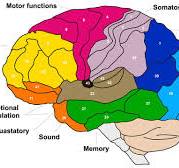Executive Function Skills and the High School Student
Executive functioning skills are critical in high school and beyond. These skills are a set of mental abilities that help us plan, focus, and manage our daily lives. Further, executive functioning skills are crucial for high schoolers’ academic success, social interactions, and well-being. Examples of executive function skills are planning and organization, time management, attention control, working memory, inhibition, flexibility, goal setting, and monitoring and initiation.
Planning and Organization
Setting goals, developing strategies, and creating plans to achieve them are parts of planning and organization. Also, you must effectively organize your time, materials, and tasks to complete assignments, study for exams, and balance extracurricular activities. High school is the best time to develop good organizational habits and executive functioning skills that you will carry into college and life. An easy one to start learning now is to check your email regularly!
In addition, keeping your papers organized and knowing when assignments are due is crucial. Whether you use Post-it notes, different-colored pens, or the various trackers available, find a system that cuts down on clutter and makes materials easy to see and find. Several apps are available to help you do this; I’d be happy to help you find one that meets your needs .http://rememberthemilk.com is an app I’m trying right now. I’ll keep you posted on how I like it.
Time Management
Next is time management. You must learn to allocate your time wisely, prioritize tasks, and meet deadlines. Distractions are all around us. Practical time management skills help students avoid procrastination, reduce stress, and maintain a healthy balance between academic responsibilities and other activities like napping and hoping it all goes away. (It doesn’t.) It’s so easy to get lost scrolling on Instagram or reading on Kindle. Lastly, set a timer and stick to it.
Find Your Peak Work Hours
I do the work that requires the most concentration in the morning and take a break from 2 to 3. Find a system that works for you. I understand some of you are night owls and work better at that time. Plot your quizzes and tests in your calendar app beforehand; no surprises!
Attention Control
Attention Control means focusing and keeping attention on tasks, ignoring distractions, and shifting attention when necessary. If this is hard, let’s find a way to make it easier. This has been challenging for me, as my townhouse is undergoing significant renovations. It’s loud! I learned about ambient noise devices, and they have been an enormous help. Noise-canceling headphones are worth the investment! Turning the phone on Quite/Focus has been a game-changer for me! Are you allowed to record the class sessions? Ask!
Working Memory
 Working memory involves holding and keeping information in the mind for short periods. It is not easy for those of us (like me) who take various medications. We need to keep an organized calendar, to-do lists, and prompts to stay organized and on time.
Working memory involves holding and keeping information in the mind for short periods. It is not easy for those of us (like me) who take various medications. We need to keep an organized calendar, to-do lists, and prompts to stay organized and on time.
Inhibition
Inhibition involves controlling impulses, regulating emotions, and resisting distractions or temptations. High school students must inhibit impulsive behaviors, manage emotions effectively, and stay focused on academic tasks despite external distractions.
Flexibility
Flexibility refers to adapting to changes, shifting strategies, and approaching problems from different perspectives. Additionally, high schoolers encounter various academic and social challenges that require them to be flexible in their thinking and problem-solving approaches. Are you resistant to change? Being able to “go with the flow” is flexibility.
Goal Setting and Monitoring
Set specific, achievable goals for your academic performance, extracurricular involvement, and personal development. Remember, your goals will likely differ from those of your peers, which is OK. Track progress toward these goals, adjust strategies as needed, and celebrate your successes, no matter how small.https://www.wisegoals.com/support-files/1.long_term_dreams_short_term_goals_worksheet_hjw.pdf
Initiation
Initiation involves starting tasks independently without excessive procrastination, avoidance, or reminders from teachers and parents. Reach out to your teachers for assistance or tutoring. You might not know where to start or feel overwhelmed. Maybe by asking for help, other students are helped as well.
Summary: Executive Function Skills and The High School Student
Everyone has to start somewhere, and we will do it together. Learning these executive function skills now in high school or sharpening them is key to building strong study habits and work habits in the future. For more information on executive function and its importance,https://admissionsuntangled.com/resources/for-learning-differences/
To get assistance, contact me at gerene@admissionsuntangled.com or www.admissionsuntangled.com

